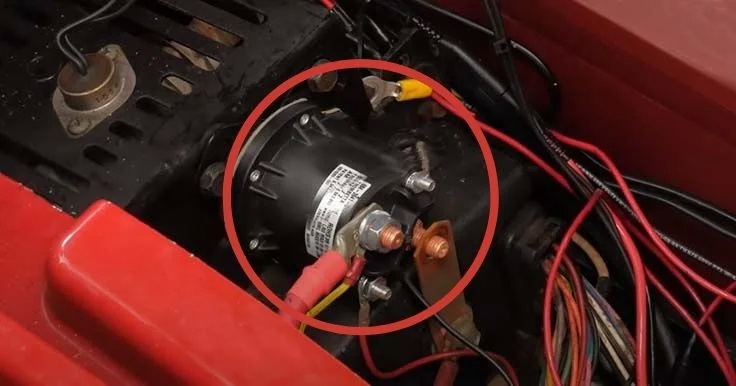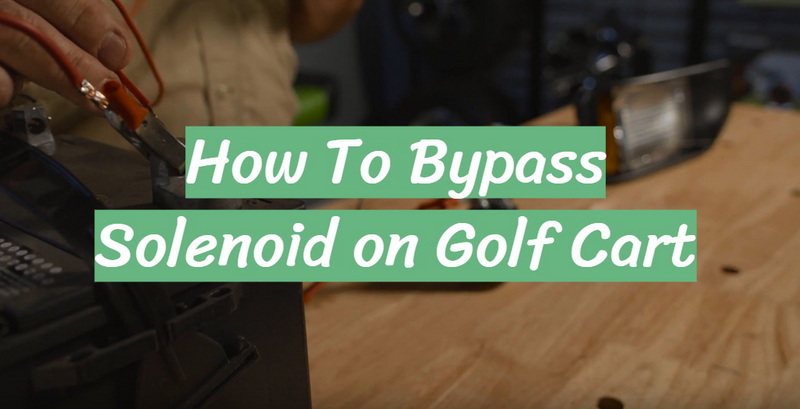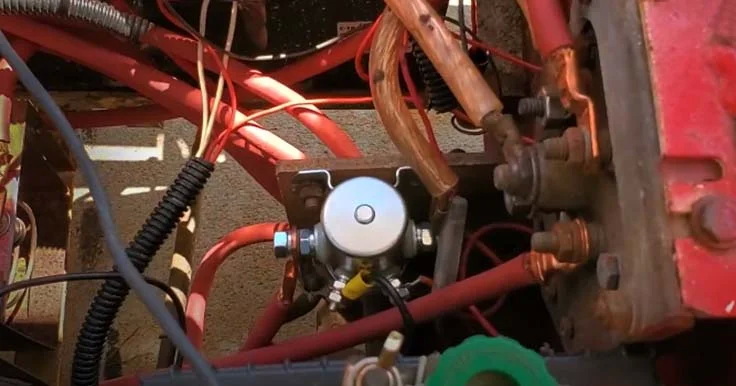Content Menu
● Understanding the Solenoid
● Reasons for Bypassing the Solenoid
● How to Bypass the Solenoid
>> Tools Needed
>> Step-by-Step Process
>> Important Considerations
● Alternatives to Bypassing the Solenoid
● Conclusion
● Related Questions
>> 1. What are the typical causes of solenoid failure in electric golf carts?
>> 2. How long should a solenoid bypass solution last before replacement?
>> 3. Are there any specific safety precautions for working with electric golf cart solenoids?
>> 4. Can I use any type of wire to bypass the solenoid?
>> 5. What are the signs that my golf cart solenoid is failing?
Electric golf carts are a popular choice for many golfers and recreational users due to their convenience and eco-friendliness. However, like any vehicle, they can experience mechanical issues. One common problem is a malfunctioning solenoid, which can prevent the cart from starting or functioning properly. In this article, we will explore how to bypass the solenoid on an electric golf cart, the reasons you might need to do so, and the potential risks involved.

Understanding the Solenoid
Before diving into the bypass process, it's essential to understand what a solenoid is and its role in an electric golf cart. A solenoid is an electromechanical device that acts as a switch. It controls the flow of electricity to the motor, allowing the cart to start and run. When you press the accelerator, the solenoid engages, sending power to the motor. If the solenoid fails, the cart may not start, leading to frustration for the user.
Reasons for Bypassing the Solenoid
There are several reasons why you might consider bypassing the solenoid:
1. Solenoid Failure: If the solenoid is defective, bypassing it can provide a temporary solution to get the cart running.
2. Testing Purposes: Bypassing the solenoid can help diagnose whether the solenoid is the root cause of the problem.
3. Cost-Effective Solution: In some cases, users may choose to bypass the solenoid instead of replacing it, especially if they are looking for a quick fix.
How to Bypass the Solenoid
Bypassing the solenoid should be done with caution, as it can pose risks if not performed correctly. Here's a step-by-step guide on how to do it:
Tools Needed
- Wrench or socket set
- Wire connectors
- Electrical tape
- Safety goggles
- Gloves
Step-by-Step Process
1. Safety First: Before starting, ensure the golf cart is turned off and the key is removed. Wear safety goggles and gloves to protect yourself from electrical hazards.
2. Locate the Solenoid: The solenoid is typically located near the battery compartment. It will have two large terminals and a couple of smaller ones.
3. Disconnect the Battery: To prevent any electrical shock, disconnect the negative terminal of the battery.
4. Remove the Solenoid Wires: Carefully disconnect the wires from the solenoid. Take note of where each wire connects, as you will need to replicate this setup when bypassing.
5. Connect the Wires: Using wire connectors, connect the two large terminals of the solenoid directly. This will allow electricity to flow to the motor without passing through the solenoid.
6. Secure the Connections: Use electrical tape to secure the connections and prevent any accidental disconnections.
7. Reconnect the Battery: Reattach the negative terminal of the battery.
8. Test the Cart: Turn on the golf cart and test if it runs. If it does, you have successfully bypassed the solenoid.

Important Considerations
While bypassing the solenoid can provide a temporary solution, it is not a permanent fix. Here are some important considerations:
- Safety Risks: Bypassing the solenoid can lead to safety hazards, such as electrical shorts or fires. Always ensure that connections are secure and insulated.
- Potential Damage: Running the cart without a functioning solenoid can cause damage to the motor or other electrical components.
- Legal and Warranty Issues: Modifying the electrical system of your golf cart may void warranties or violate local regulations.
Alternatives to Bypassing the Solenoid
If you are uncomfortable with bypassing the solenoid or if it does not resolve the issue, consider these alternatives:
- Replace the Solenoid: The most reliable solution is to replace the faulty solenoid with a new one. This ensures that the cart operates safely and efficiently.
- Consult a Professional: If you are unsure about the process or the underlying issue, it's best to consult a professional mechanic who specializes in electric golf carts.
Conclusion
Bypassing the solenoid on an electric golf cart can be a useful temporary solution in certain situations. However, it is essential to understand the risks involved and to consider more permanent solutions, such as replacing the solenoid. Always prioritize safety and consult professionals when in doubt.

Related Questions
1. What are the typical causes of solenoid failure in electric golf carts?
Solenoid failure can be caused by electrical shorts, corrosion, or wear and tear over time. Regular maintenance can help prevent these issues.
2. How long should a solenoid bypass solution last before replacement?
A bypass solution is temporary and should only be used until the solenoid can be replaced. It may last a few days to weeks, depending on usage.
3. Are there any specific safety precautions for working with electric golf cart solenoids?
Always disconnect the battery before working on the electrical system, wear safety gear, and ensure that all connections are secure and insulated.
4. Can I use any type of wire to bypass the solenoid?
It is recommended to use appropriate gauge wire that can handle the electrical load of the golf cart to prevent overheating and potential hazards.
5. What are the signs that my golf cart solenoid is failing?
Common signs include the cart not starting, clicking sounds when the accelerator is pressed, or intermittent power loss while driving.










































